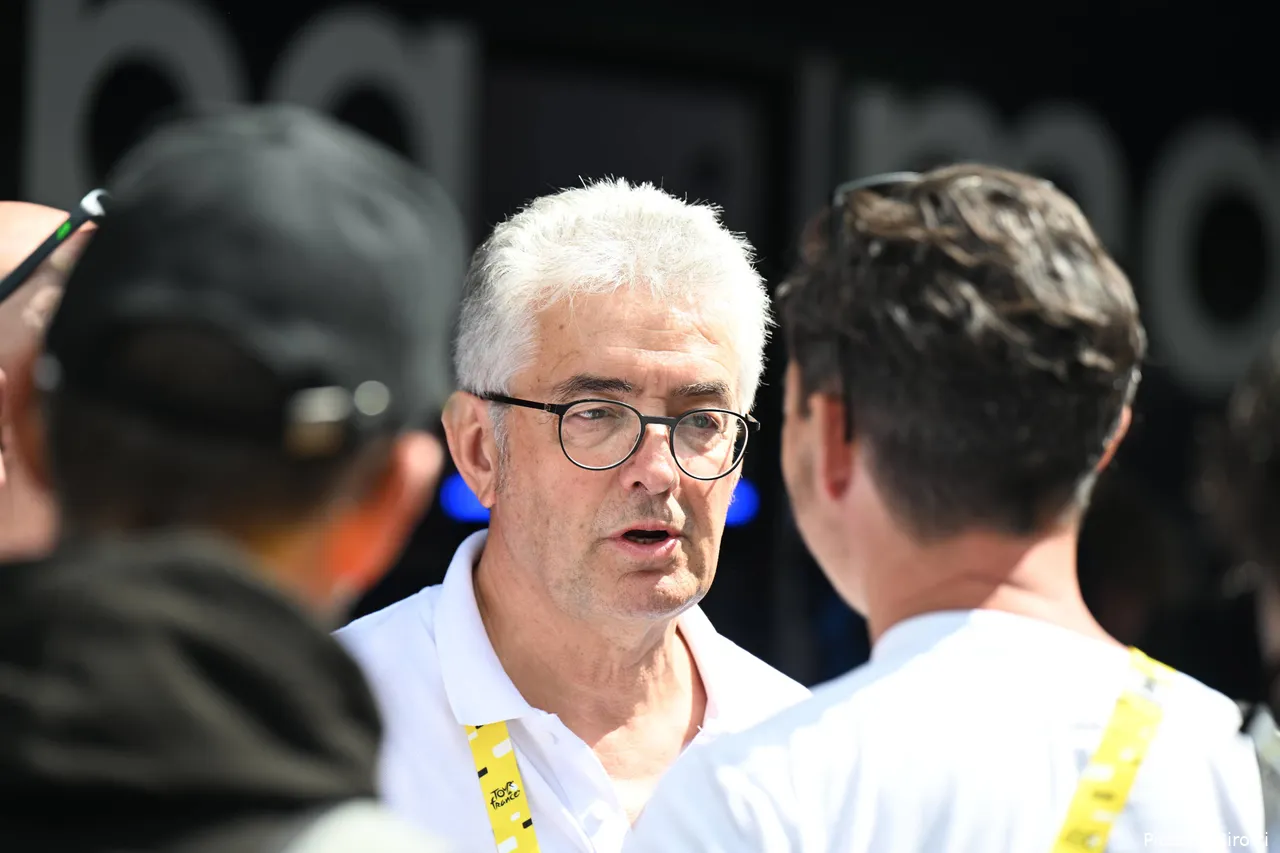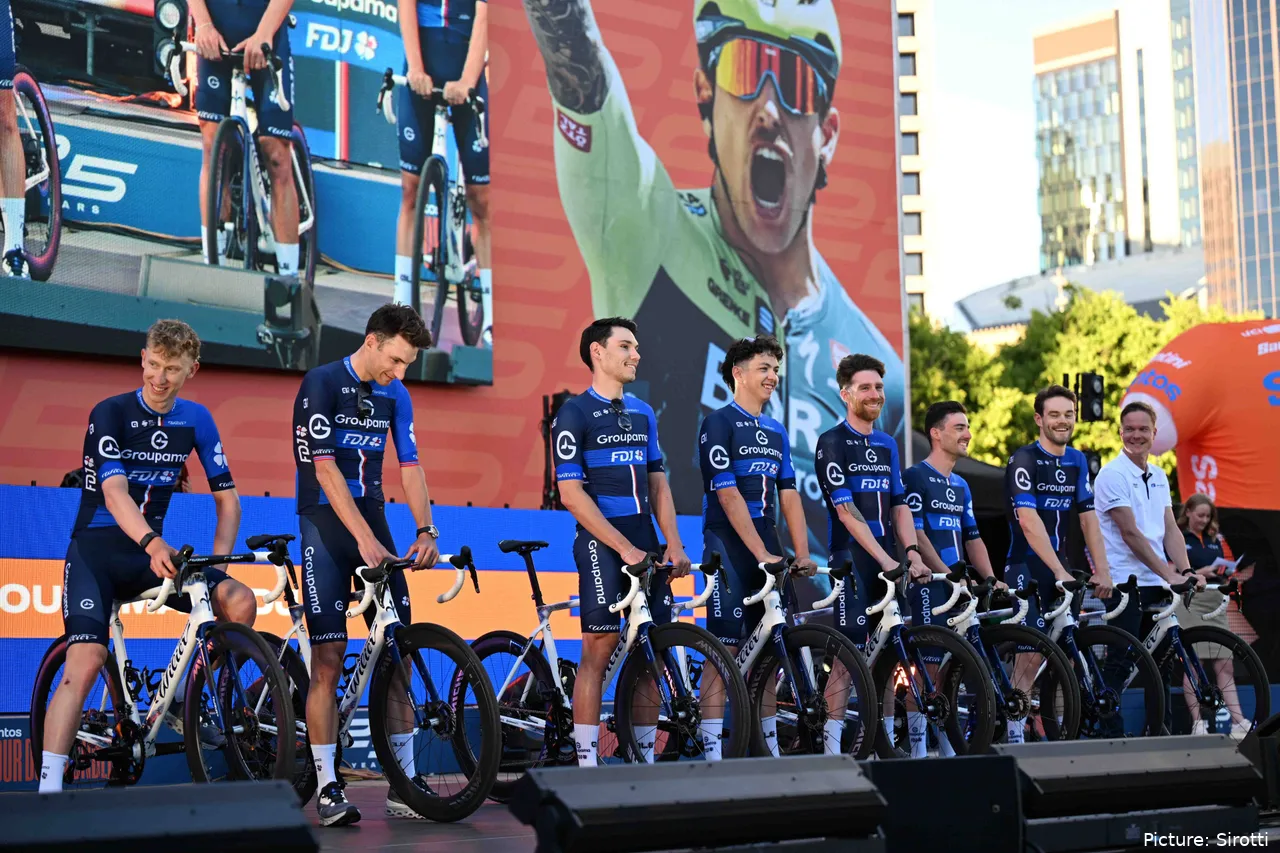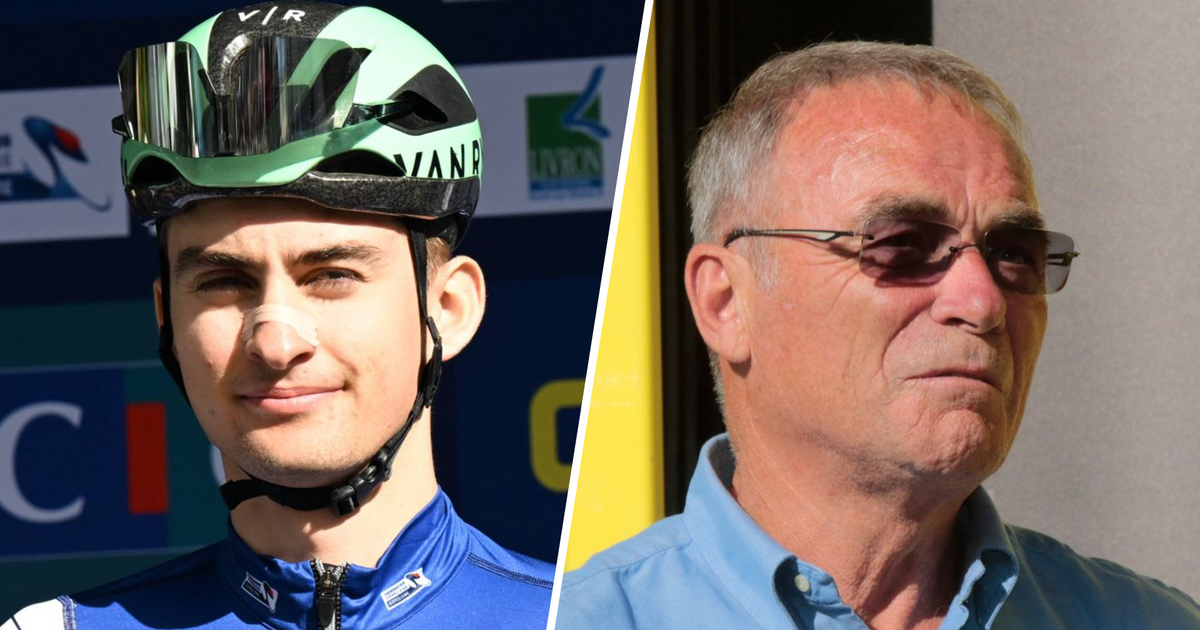“The phenomenon of youth is part of modern cycling,” Madiot continued. “Riders are better prepared, better trained, better educated. They’re ready much earlier than before. It’s true in cycling, and in other sports too — look at football. The new generations are more advanced physically and mentally because they’re better managed and better supported.”
Hope and concern for French cycling
While Madiot’s admiration for Seixas is clear, his tone shifts when the discussion broadens to the state of the French cycling ecosystem. The collapse of Arkéa – B&B Hotels, confirmed this week after Emmanuel Hubert failed to secure a new sponsor, has clearly hit a nerve.
“It’s sad for everyone — for the riders, the staff, for Manu himself,” Madiot said. “We know it’s a delicate economic period in France, and cycling is changing fast. Traditional cycling nations like France and Belgium are struggling to keep pace with the global economic expansion. I just hope the UCI will put safeguards in place to allow everyone to survive, because otherwise we’re heading for real difficulty.”
It’s a striking warning from a man who’s spent decades navigating the sport’s shifting financial tides. Madiot recalls an earlier era of French unity — when teams, riders and organisers maintained what he calls a “cohesion” that sustained the sport for forty years. “We had good races, strong teams, and harmony between everyone involved. That’s what got us through difficult times in the past. I just hope we can continue to evolve under good conditions — and above all, that we can try to preserve French cycling while it’s still possible.”

Marc Madiot has seen it all in terms of French cycling
“UAE dominating everything? It’s almost logical.”Beyond France’s internal challenges, Madiot also acknowledges a broader truth about the balance of power at the top of world cycling. UAE Team Emirates – XRG’s dominance — closing in on 100 wins this season — has raised questions about competitive imbalance. For Madiot, though, such supremacy is simply the natural order of things.
“The biggest teams have always won the most races,” he said. “Those with the biggest budgets are best placed to win more often. UAE dominating the season is almost logical — even normal — when you look at their depth. Out of 30 riders, 26 or 27 could be leaders anywhere else.”
It’s a pragmatic, unsentimental take — characteristic of a manager who’s lived through many eras of boom and bust. For all the talk of fan fatigue and predictable racing, Madiot remains convinced that enthusiasm will reset once the new season begins. “Fans might feel a bit of weariness, yes, but everything resets when we start again. By January, with Australia and the Tour Down Under, there’ll be excitement and motivation again — from both teams and fans.”
A model built on youth
Despite his concern for the wider landscape, Madiot continues to build for the long term through Groupama–FDJ’s renowned development system — a structure once considered overly forward-thinking, now proven essential.
“People criticised us for focusing on young riders thirty years ago,” he said. “Maybe we were too far ahead at the time — but it’s always been our model. The youth structure is the foundation of the team. Every few years, new talents arrive at the top level, and I hope they’ll keep progressing next season.”
Asked to name the next big name to emerge from the Groupama–FDJ academy, Madiot refused to single anyone out — a hint that the system, rather than any individual, is what matters most. “We’ll see with time,” he smiled. “Hopefully there’ll be several. We don’t want just one — we want a strong, ambitious young core.”

Groupama – FDJ pose for a team photo
From Hinault to Seixas
For all the uncertainties surrounding sponsorships, budgets and the UCI’s points system, Madiot still finds solace in the sight of young French talent breaking through. His comparison between Paul Seixas and Bernard Hinault may have raised eyebrows, but it captures something essential: belief that French cycling, for all its fragility, still produces riders capable of greatness.
“If Bernard Hinault were 19 today, he’d have the same abilities as Paul Seixas,” Madiot repeated. “That tells you the level.”
For a sport searching for its next true French superstar, few endorsements could carry more weight.

